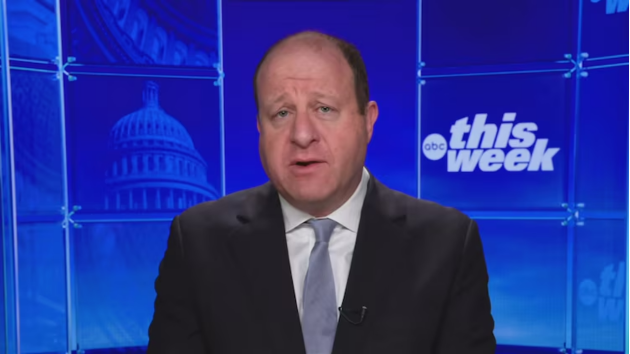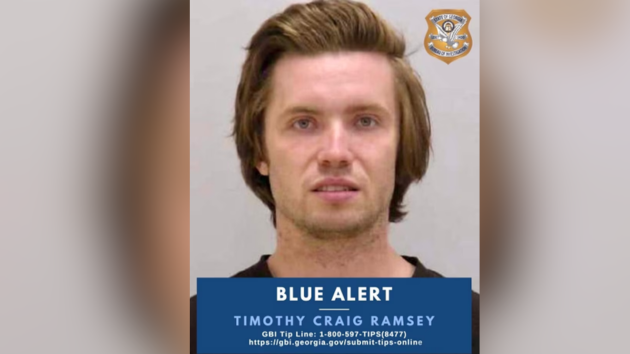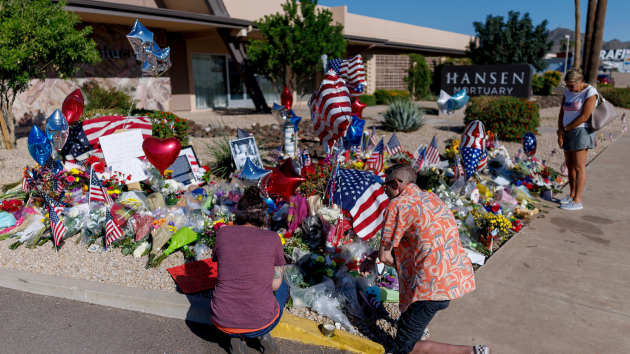Amir Locke’s death highlights perils for Black gun owners: Advocates
Written by luck on February 11, 2022
(NEW YORK) — Amir Locke was fatally shot by Minneapolis police officers in an apartment early Wednesday morning as officers were executing a “no-knock” search warrant.
Locke, a legal gun owner, had been sleeping under a blanket on the couch, and body camera footage shows a gun in his hand as he begins to sit up when police begin to approach him.
An officer can be seen shooting him less than 10 seconds after entering the room: “That’s the moment when the officer had to make a split-second decision to assess the circumstances and determine whether he felt like there was an articulable threat,” according to acting Minneapolis Police Chief Amelia Huffman.
Locke was not a suspect in the crime for which the warrant was issued and was not named n the document.
Many advocates say his case highlights the dangers of legal gun ownership for Black Americans due to racism and implicit bias.
“Amir Locke, a lawful gun owner, should still be alive,” said Bryan Strawser, the chair of the Minnesota Gun Owners Caucus, a non-profit gun rights advocacy group, in a statement. “Black men, like all citizens, have a right to keep and bear arms. Black men, like all citizens, have the right to be secure in their persons, houses, papers, and effects against unreasonable search and seizure.”
No-knock warrants, like the one executed on Locke’s residence, allow officers to enter a private home without knocking or making their presence known.
“A lot of Americans are gun owners,” said Sarah Murtada, one of the leaders in the student-run advocacy group Knock First Minnesota, at a Minneapolis City Council meeting Monday.
She added, “They have a Second Amendment right to own guns. And so, they hear someone in their home, and a lot of the time they even use those guns for self-protection, not realizing that it’s the police in their home.”
Huffman expressed sympathy for Locke’s family in a press conference and added that the county attorney’s office will review the case for misconduct by the officer who shot him.
She said the officer made a split-second decision after seeing the gun in Locke’s hand.
“These events unfold in seconds. But the trauma is long-lasting,” Huffman said. “A young man lost his life and his friends and family are in mourning. Community members are in pain and have questions and rightfully so.”
Other police shootings involving Black gun owners
This isn’t the first example of a Black gun owner being shot while carrying their legally owned gun.
In July 2016, Philando Castile was shot and killed by police in front of his girlfriend and her daughter after being pulled over for a broken brake light in St. Paul, Minnesota. Castile was a registered gun owner and told the officer he had a firearm in the car.
In March 2020, Breonna Taylor, 26, was sleeping when police executed a no-knock warrant on her apartment late at night. They entered the home in plainclothes, and her boyfriend and legal gun owner Kenneth Walker shot at one of the officers.
The officers fired back, and Taylor was killed by police in the gunfire. Officials say the officers announced themselves, though that has been disputed.
In November 2020, Emantic Fitzgerald “EJ” Bradford Jr. was mistakenly believed by Hoover, Alabama, police to be the suspect in an active shooting in a mall.
Bradford, who had a permit to carry a concealed weapon and was armed the night he was shot, had drawn his gun in an attempt to protect himself and others during the shooting, his family said.
For police, encountering people with guns in any circumstance can prove to be dangerous for officers as well — the National Law Enforcement Memorial Fund found that 62 officers were killed by guns in 2021.
“Policing, particularly with a SWAT team, is a dangerous, high-stress profession where officers are forced to make important split-second decisions in defense of themselves and fellow officers, especially when weapons are involved,” said the local union, the Police Officers Federation of Minneapolis, in a statement to ABC-affiliate KSTP-TV regarding Locke’s death.
At least 58% of people shot and killed by police over the past several years had a gun, according to the Washington Post’s “Fatal Force” database that tracks police shootings.
Black people were disproportionately represented among police shooting victims, making up 22% of those killed since Jan. 1, 2015, the database shows.
Increase in gun ownership for Black Americans, but discrimination persists
About a quarter of Black people say they own a gun, according to the Pew Research Center. And that number seems to be growing.
In November 2021, the National Shooting Sports Foundation, a national trade association in the firearms industry, told ABC News that when comparing 2019 to 2020, there was a 58.2% increase in gun purchases among Black people.
The NSSF estimates that 40% of gun sales overall were for first-time gun buyers.
Despite this growing representation in gun ownership, implicit bias, discrimination and prejudice haunt Black gun owners, advocates say.
“After the murder of Philando Castile, we [at the Black Gun Owner Association] began to strategically focus and educate our members on how to successfully interact with police when being stopped with a licensed firearm, [we] realize there is a double standard as to the way black gun owners are perceived and we work tirelessly to try and change that perception,” said the Black Gun Owner Association in a statement to ABC News.
Black people are about three times more likely to be killed by police than white people in the U.S., according to the independent research organization Mapping Police Violence.
When it comes to no-knock warrants, the ACLU found that 42% of SWAT search raids in major U.S. cities had Black suspects. From 2010 to 2016, 81 civilians and 13 officers have been killed during the execution of this kind of search in America, according to the New York Times. Negative stereotypes continue to put Black gun owners at a heightened risk of discrimination, especially while protecting themselves from perceived intruders or while legally carrying, activists argue.
Implicit biases, that come from stereotypes that associate Black people with crime, violence or hostility, can influence judgments and behaviors unconsciously, according to University of California, Berkeley, research.
One study in the Journal of Personality and Social Psychology found that, when studying both police officers and undergraduates, both groups were quicker to identify images of weapons as they became de-pixelated when they were preceded by subliminal images of Black faces than when preceded by white faces.
Implicit bias and stereotypes also cause people to perceive Black men in particular as more threatening and larger than similarly sized white men, according to research published by the American Psychological Association.
“Mr. Locke did what many of us might do in the same confusing circumstances, he reached for a legal means of self-defense while he sought to understand what was happening, “ added Rob Doar, senior vice president, governmental affairs from the Minnesota Gun Owners Caucus.
He added, “It’s yet another example where a no-knock warrant has resulted in the death of an innocent person. In this case, as in others, the public should expect and receive full transparency and accountability from law enforcement agencies that serve and protect our local communities.”
Copyright © 2022, ABC Audio. All rights reserved.





